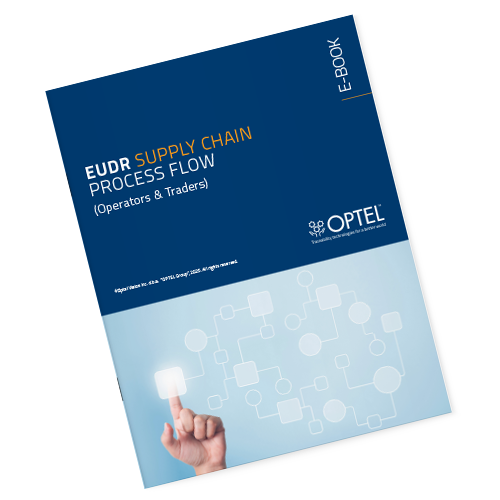UNDERSTANDING THE EUDR
Passed into law in the summer of 2023, the EUDR aims to ensure that products entering the EU market have not caused any deforestation and are legally produced. The regulation targets commodities, including soy, coffee, cocoa, wood, rubber, beef, palm oil, and their derivatives. By defining “deforestation-free” as products cultivated on land not destructed after 2020, the EUDR sets a clear standard for legal sustainability compliance.
Under the EUDR, businesses importing these products into the EU will be responsible for verifying that their supply chains are traceable and proving that they are free from illegal deforestation. This extends upstream responsibilities to manufacturers and retailers, requiring them to work with their suppliers to adhere to these high environmental standards. While larger firms were expected to implement these measures this year, the mandate would extend to smaller businesses 6 months later.
EUDR NEW TIMELINE
Initially scheduled to take effect on December 30, 2024, for large businesses and June 30, 2025, for micro and small enterprises, the regulation’s rollout has been pushed back. If agreed by the European Parliament mid November, the obligations from this regulation will be binding from:
- 30 December 2025, for large operators and traders
- 30 June 2026, for micro- and small enterprises
This should enable organizations to take advantage of a phasing-in period so that all supply chain stakeholders can ready their operations for meeting the criteria of the regulation.
LEVERAGING THE EUDR DELAY
Many companies and industry experts are relieved by the delay, and for good reason. This extension offers a valuable opportunity for those who may have started their EUDR compliance journey later than planned. Implementing these changes takes time, especially in complex, multi-tiered supply chains. Those who have begun know that mapping your supply chain and onboarding all suppliers is a detailed, time-consuming process.
Now, with this extra time, businesses have the chance to approach compliance with the correct timelines in place, allowing for careful planning and execution. Companies can set achievable milestones to ensure they stay on the right track. This is the ideal moment to accelerate efforts toward conducting thorough supply chain mapping, automating data collection and connecting your systems to deliver due diligence statements. With this head start, companies can establish a solid regulatory compliance infrastructure, ultimately allowing them to meet EUDR requirements efficiently.





